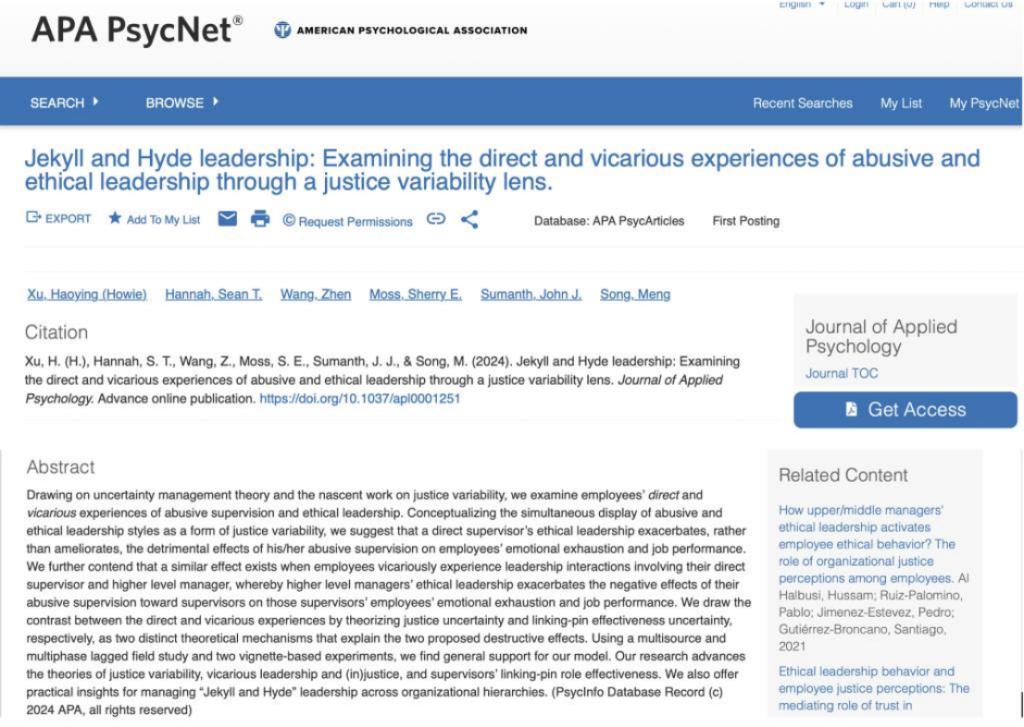Professor Wang Zhen of the Business School Publishes Papers in Journal of Applied Psychology
Recently, Professor Wang Zhen of the Business School published the following paper in Journal of Applied Psychology, a top journal in the field of management, as a corresponding author: Jekyll and Hyde Leadership: Examining the Direct and Vicarious Experiences of Abusive and Ethical Leadership through a Justice Variability Lens. The co-authors of this paper were from Stevens Institute of Technology, Wake Forest University and Beijing University of Technology. JAP is a FT50 journal, an ABS-4* journal, and a AAA journal of the Business School. This is also the 8th FT50 journal paper published by Professor Wang Zhen as a teacher in our school.

Since the beginning of this year, Professor Wang Zhen has also published three papers in ABS-4 journals, including two papers published as the first author in Journal of Occupational and Organizational Psychology and Journal of Vocational Behavior, and one paper published as a corresponding author in Journal of Vocational Behavior.
The paper, published in JAP, focuses on the phenomenon that leaders exhibit both abusive and moral behaviors. Based on uncertainty management theory and fairness variability, the research adopts a multi-source, multi-time paired questionnaire survey and two situational experiments to examine employees' direct and indirect experiences of abusive-moral behaviors of their direct leaders and senior leaders thereof (i.e. leaders of their direct leaders). This research challenges the previous understanding that leaders' moral behaviors will alleviate the negative effects of their abusive behaviors, and finds that leaders' moral behaviors would not alleviate but intensify the negative effects of abusive supervision, causing subordinates' emotional exhaustion, task performance, decrease in citizenship behaviors and increase in counter-productive behaviors. Besides, the abusive-moral behaviors of senior leaders towards direct leaders observed by subordinates will have the same negative effect. This paper further finds that the mechanisms of the impact of abusive-moral behaviors of two types of leaders on the psychology and behaviors of subordinates are different: the experience of the abusive-moral behaviors of direct leaders would reduce subordinates’ perception of uncertainty about the fairness of the leaders; the observation of the abusive-moral behaviors of senior leaders towards direct leaders would reduce subordinates’ perception of uncertainty about the effectiveness of their direct leaders. The two perceptions of uncertainty would cause emotional exhaustion and its negative consequences. This research expands the academic community’s understanding of the coexistence of abusive behaviors and moral behaviors, the perception of uncertainty and the complexity of multi-level leader-subordinate interaction in organizations.
